Episodes
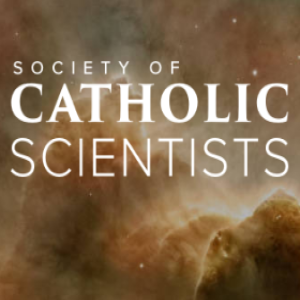
Monday Jun 06, 2022
Bonus - Society of Catholic Scientists 2022
Monday Jun 06, 2022
Monday Jun 06, 2022
Quick hit running down the SCS Conference for 2022 at Mundelein Seminary outside Chicago. The conference theme was the environment.
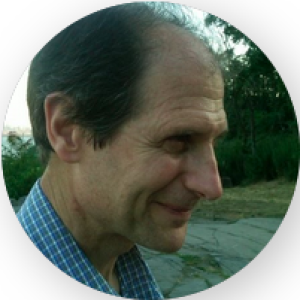
Tuesday May 31, 2022
Ep 140 - Chris Bell – Views from a Pro-Life Lifetime
Tuesday May 31, 2022
Tuesday May 31, 2022
- Christopher Bell, president and executive director of Good Counsel Homes, is “on the frontline of the pro-life movement,” as The Catholic World Report wrote in a 2021 profile. Chris and TSSM co-host Bill Schmitt have been friends since their college years, when they were both studying journalism. Co-host Paul Giesting joined the two native Long Islanders for a discussion of Catholic values in the abortion debate shortly after the leak of a draft US Supreme Court decision which pointed toward a Court decision overruling Roe v Wade.
- In 1985, Bell co-founded Good Counsel with Father Benedict Groeschel, who was a much-loved voice in Catholic spirituality and media and a member of the Franciscan Friars of the Renewal.
- Good Counsel operates four homes to provide basic necessities and steps toward a stable future for moms and their babies, unborn and recently born, in New York and New Jersey. The homes are a pro-life alternative available at no cost to mothers who choose to give birth rather than abort their babies.
- The trajectory of politics and policies in New York and New Jersey has been strongly pro-abortion. The differences in approaches among all the states are being highlighted more than ever in the context of the Supreme Court’s pending decision in Dobbs v Jackson Women’s Health Organization.
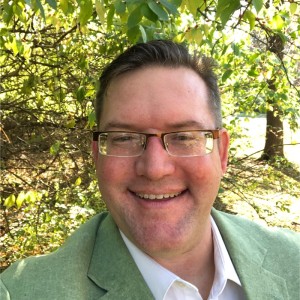
Tuesday Oct 05, 2021
Episode 133 - Cybersecurity Education as a Vocation with Matthew Cloud
Tuesday Oct 05, 2021
Tuesday Oct 05, 2021
- Paul and Bill discussed computer education and cyber-security with Matthew Cloud, professor of the practice in the computer science program at Holy Cross College in Notre Dame, IN.
- Cloud has extensive experience in education, not only through classroom teaching at schools including Indiana’s Ivy Tech network of community colleges, but also through project management, curriculum development, and strategic collaborations with other a range of colleges and universities. Cloud holds a bachelor’s degree from Texas A&M University and a master’s degree in biomedical engineering granted jointly by the University of Texas and the UT Southwestern Medical Center.
- He is working within the Holy Cross College science department to grow a distinctive undergraduate program in computer science. Through a different understanding of essential skills and characteristics, such a program could increase access to meaningful information technology careers among students with more diverse backgrounds of knowledge, training, interests, socio-economic resources, etc. Increasing the access to such positions offers advantages to the students, to companies with growing IT and cybersecurity needs, and to the safety and sustainability of societies. You can go to cyberseek.org and get the latest estimates of how many US cybersecurity jobs are currently open, waiting for applicants. Prof. Cloud says that number has been hovering around 500,000.
- One of the multi-school projects he is helping to lead is funded by a grant from the National Centers of Academic Excellence in Cybersecurity. His focus on a win-win balance between the demand for tomorrow’s computing/AI/cybersecurity/data science professionals and the supply of motivated, well-trained students pursuing these fields takes the form of several partnerships funded by prestigious grants.
- The goal of attracting more US students, of all backgrounds, into computer-related studies, whether they be focused on engineering or on different fields of study (including the liberal arts, philosophy, and more), is being pursued by many institutions. You can visit http://code.org to see one approach for encouraging young people to consider a computer-related career.
Sunday Aug 08, 2021
Bonus Episode - WOFI Faith & Science Summit
Sunday Aug 08, 2021
Sunday Aug 08, 2021
Word on Fire will be holding a Faith and Science Summit August 9-12 (starting tomorrow!). It will feature at least nine speakers, including the SCS' own Jonathan Lunine and Karin Oberg.
Among the topics discussed will be
- The history of the Church and science, including a wealth of details that get glossed over by the "conflict hypothesis"
- Specific coverage of what went wrong between the Pope, cardinals, and Galileo, and why that's far from a typical example of how the Church treats scientists
- The counterexample of George LeMaitre
- Theological motivations *for* doing science from the perspective of the Christian faith
- Insights from science that have enriched our appreciation of creation, the physical universe, and our own human origins
- Catholic theology and speculation about the possibility of extraterrestrial life
Find out more at:
https://wordonfire.institute/faith-and-science-summit
If you're a Word on Fire Institute member:
https://wordonfire.institute/faith-and-science-summit-wofimembers

Tuesday Jun 08, 2021
Episode 127 - SCS Meeting 2021
Tuesday Jun 08, 2021
Tuesday Jun 08, 2021
Paul and Bill provide an on the scene review of the Society of Catholic Scientists Conference 2021 at the Washington, D.C. Hilton. The themes were Extraterrestrial Life, Artificial Intelligence, and Minds beyond the Human.
As an added service, here are some links provided by the after dinner speaker, Jennifer Wiseman, to works and groups dedicated to faith - science dialogue:
Book: "The Book of the Cosmos: Imagining the Universe from Heraclitus to
Hawking" (Editor Prof. Dennis Danielson, UBC; Perseus, 2000)
Book: "The Language of God", by Francis Collins (Director of the U.S. Human Genome
Project; Free Press, 2006)
Organizations and Websites:
Society of Catholic Scientists! catholicscientists.org
Dialogue on Science, ethics, and Religion (DOSER), American Association for the
Advancement of Science: aaas.org/doser
sciencereligiondialogue.org
Sinai and Synapses: sinaiandsynapses.org
American Scientific Amilation (ASA) asa3.org
(network of scientists, engineers, teachers, and science enthusiasts Interested in
the relationship of science and Christian faith)
Biologos.org
Science for the Church: scienceforthechurch.org
Scientists in Congregations: scientistsincongregations.org
Faraday Institute for Science and Religion: www.faraday.cam.ac.uk
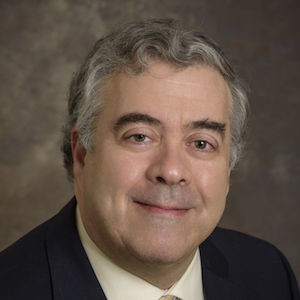
Monday May 31, 2021
Episode 126 - Society of Catholic Sciences Preview with Stephen Barr
Monday May 31, 2021
Monday May 31, 2021
- Paul and Bill welcomed Stephen Barr, Ph.D., president of the Society of Catholic Scientists (SCS), for a return visit to TSSM. Dr. Barr, a theoretical particle physicist, is emeritus professor in the Department of Physics and Astronomy at the University of Delaware. We talked with him about the Society of Catholic Scientists and the organization’s fourth annual conference, scheduled June 4-6, 2021, in Washington, DC.
- The growing membership of SCS now totals about 1,500 in multiple countries. The organization was founded in 2016 by Dr. Barr and five other scientists. Barr, author of Modern Physics and Ancient Faith, described the upcoming conference, which is titled “Extraterrestrials, AI, and Minds Beyond the Human.” See details of the conference The SCS has posted an announcement about live-streaming of conference talks for those who have not registered to attend in-person.
- The talks will be livestreamed at https://catholicscientists.org/conference2021. The schedule of talks can be found HERE. During the talks, questions for the speakers can be emailed in to questionsSCS2021@gmail.com. As time permits, some questions will be selected from those emailed in and posed to the speakers during the Q&A sessions.
- Barr gave an overview of the event and the speakers.
- One of the speakers, Prof. Lawrence Principe, Ph.D., will also be the recipient of the Society’s Saint Albert Award. The award, bestowed annually, is named for St. Albert the Great, patron saint of the natural sciences. Dr. Principe, a historian of science at Johns Hopkins University, has been a leading voice in dispelling the myth of a historical conflict between science and religion, Dr. Barr pointed out. A course titled “Science and Religion” is offered by Principe through the “Great Courses” organization and is available online.
- The conference’s keynote speaker is Christopher Baglow, Ph.D., director of the Science & Religion Initiative in the McGrath Institute for Church Life at the University of Notre Dame. Dr. Baglow, whose unique high school textbook Faith, Science, and Reason: Theology on the Cutting Edge has now been published in a second edition, was a guest on a previous episode of the TSSM podcast.
- Barr pointed out that, although the Society did not hold a conference in 2020, it greatly expanded its website, which now includes instructional materials about science and religion. One feature is a curated historical collection of concise bibliographies about important scientists who were practicing Catholics. Barr thanked his collaborator Andrew Kassebaum for that content, which is more authoritative than other online lists of “Catholic scientists.”
- The SCS continues to work to expand its services to teachers and students. The SCS website, at org, already contains numerous videos of talks from past conferences. Dr. Barr said the Society’s goals include facilitating wide-ranging intellectual and spiritual fellowship for Catholic scientists and helping to evangelize a secular culture that is infused with thoughts and messages prioritizing science and technology. The work of spreading the faith through science will increasingly use new media.
- Another form of evangelization is the Society’s support for Church celebrations of “Gold Masses” in numerous localities in the United States and elsewhere. Gold Masses, often planned as Votive Masses in honor of St. Albert the Great, are celebrated for members of the science professions. The Masses are part of the effort to increase the Society’s grass-roots activities through local and campus chapters.
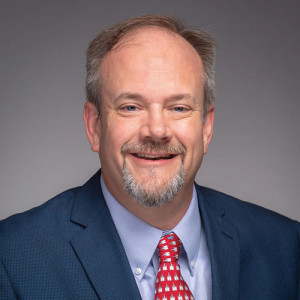
Tuesday May 11, 2021
Episode 125 - Chris Baglow and Jay Martin (rerun, full episode)
Tuesday May 11, 2021
Tuesday May 11, 2021
- Paul and Bill are proud to present this encore episode featuring the Science and Religion Initiative featuring the Science & Religion Initiative program conducted by the McGrath Institute for Church Life at the University of Notre Dame. In 2019, we interviewed Chris Baglow, Ph.D., director of the program, which equips Catholic high school educators with big-picture insights and detailed tools to communicate effectively regarding the complementarity of faith and reason, science and religion.
- We spoke with Prof. Baglow about topics covered in his recently published book, the second edition of Faith, Science, & Reason. He will be keynote speaker at the 2021 conference of the Society of Catholic Scientists, scheduled for June 4–6 in Washington, DC. Find information about the conference
- We also spoke with Jay Martin, Ph.D., a scholar in systematic theology who was the Science & Religion Initiative’s assistant director and is now Assistant Teaching Professor in Notre Dame’s Department of Theology.
- The initiative, with support from the Templeton Foundation, encourages a coordinated approach to educating young Catholics, helping them to avoid the trap of a focus on science as an exclusive source of truth and “real” knowledge. Such a focus can drive students away from the Catholic Church’s wisdom and values if it dismisses religious faith as meaningless—not worth serious engagement in their minds and hearts.
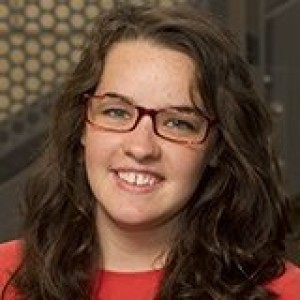
Monday Mar 08, 2021
Episode 121 - Megan Levis, full interview (rerun)
Monday Mar 08, 2021
Monday Mar 08, 2021
Life is pretty intense for Paul these days. We present this interview with Megan Levis from the 2019 Society of Catholic Scientists archives, every bit as relevant now as it was then. It was originally presented as two episodes.
- Megan Levis is a fifth-year graduate student in bioengineering at the University of Notre Dame. The topic of her talk at the annual conference of the Society of Catholic Scientists was “Created in the Image and Likeness of Man.” She described the University’s bioengineering program.
- Growing what can be deemed the beginnings of a human brain, for purposes of research, invites important ethical considerations. Levis has found resources at and through Notre Dame for deeper study of the responsibilities entailed in such research. She has worked with the John J. Reilly Center on science, technology and values. She has also been part of the Leadership Advancing Socially Engaged Research (LASER) program within the Graduate School.
- Levis participated in an NSF-supported workshop on engineering design principles of multicellular living systems. Such workshops reflect a growing nationwide interest in the ethical and societal ramifications of rapidly developing technology related to systems of living things. The interest is prompting collaboration among philosophers, scientists, ethicists and engineers.
- It’s a false dichotomy to separate faith and engineering. Levis said her advisor [Jeremiah Zartman] has been supportive of integrating values-related concerns, and that integration has made her research better. Now that there is an increased focus in bioengineering on the transfer, or translation, of knowledge from the lab bench to hospitals and clinical practice, the assessment of ethical implications is even more important.
- Organoids are systems built from human cells that begin to look like an organ. In this new field, it’s important to create room for philosophical understanding, but right now the field is dominated by engineers and scientists largely using terms that sound like clunky jargon. Philosophy tells us we need to define our terms better, Levis said. We need better ways to describe what’s going on in accessible ways that allow for ethical thinking. Engineers tend to look at every component in its specifics, but there is value in seeing how one thing is similar to something else so both may come under similar ethical principles.
- This is the second half of TSSM’s interview with Megan Levis. We talked at greater length about this graduate student’s research and its good fit with values-informed thought, with the Society of Catholic Scientists, and even literature. The Society held its third annual conference at the University of Notre Dame a few months ago.
- In Megan’s presentation to the scientists at the SCS annual conference, she posed the question: How do you distinguish and exercise ethical responsibilities when something like brain organoids are “made in the image and likeness of man rather than the image and likeness of God.” Organoids are multicellular systems built from brain tissue. Are they just cell cultures or something so akin to the human being—particularly when they are brain organoids—that ethical duties arise out of respect for human dignity? This is a relatively new field where the scientific understanding and moral consideration still must develop in tandem, she explained. A New York Times article touched on some of the questions being raised.
- Megan’s own main research project as part of her graduate studies at Notre Dame deals with microfluidics. They are devices, a kind of miniature bio-reactor, in which researchers can grow cells and small organs. Her goal is to make it easier and less expensive to make microfluidics that can be used in future research. Here are resources on microfluidics from the journal Nature.
- Her collaborations in this area came about from her meeting with a leader in microfluidics technology, Dr. Fernando Ontiveros, while they were both attending a previous SCS conference. His team is exploring new applications for microfluidics, such as the growing of organoids.
- At what point should moral concerns tied to the dignity of the human person “kick in” when dealing with the brain and brain organoids? Where do you as a person reside in the body? The existence of a capacity for rational thought is a conventional scientific benchmark for the existence of personhood, Megan said. There are many theories of the complex brain-mind-body connection with personhood. The human person is a complex creature, not reducible to the brain or body alone. Here’s an exploration of some insights from National Geographic.
- There is a real role for literature in helping us to explore the many questions that combine operational questions of engineering and more abstract, integrated thinking about persons, Megan says. She recommends renowned author Walker Percy, who explored such subjects in Lost in the Cosmos: The Last Self-Help Book. He comments that being a human is inevitably an uncomfortable process involving tensions within our nature. Our culture tends to look to science for answers to the big questions of human nature, but literature and art are pathways to answers too; literature allows us to think without predispositions and suppositions, to discover truths about ourselves and the world that transcend scientifically measurable parts. As Megan put it, the ability to wonder about the world is a gift that is transmitted sometimes through engineering and sometimes through literature and art.
- Megan has been able to work with Ontiveros while he has done research and prepared journal articles at Notre Dame. With the support of mentors and advisors, she has embraced opportunities at Notre Dame and elsewhere to spend time thinking about faith and science in relationship. She attended a conference with like-minded graduate students interested in these connections. She has appreciated the insights of SCS president Stephen Barr and microbiologist Fr. Nicanor Austriaco, OP, a speaker at this year’s SCS conference. Barr is the author of Modern Physics and Ancient Faith.
- Austriaco has recorded a podcast available through the Thomistic Institute titled The Science and Practice of Christian Prayer.
- What does Megan recommend for graduate students and others who want to advance in their bioengineering studies while staying informed and mindful about the faith-related aspects? She highlights the power of community, building friendships and conversations over time with a diverse range of people on similar journeys, including philosophy and science. One can attend relevant lectures and conferences, such as those sponsored by Notre Dame’s De Nicola Center for Ethics and Culture. She recommends the resources of the Collegium Institute. Building and updating such mindfulness is a long-term process requiring persistence, she adds.
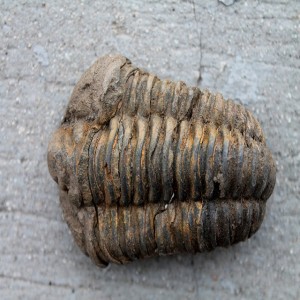
Monday Feb 08, 2021
Episode 119 - Evolution in Christianity and Geology (rerun)
Monday Feb 08, 2021
Monday Feb 08, 2021
A rerun of Episode 6.
Do not blame Morgan for the sound quality of this episode! All complaints should be directed to Paul at the email link at https://www.thatssosecondmillennium.net.
Bill and I hope to be back in action soon.

Monday Jul 27, 2020
Episode 106 - Beyond Heisenberg, the Principal Uncertainty
Monday Jul 27, 2020
Monday Jul 27, 2020
...or as Paul wanted to put it, "Lies, D--d lies, and p-values."
- This episode contains a conversation between Paul and Bill in which you’ll learn new things about their experience in particular fields—geology and journalism, respectively—and where their zeal to harvest and connect information bumps up against troublesome uncertainty. You’re accustomed to hearing us as podcast co-hosts, sharing our opinions and our interviews with experts to explore insights at the intersection of science, everyday human experience, and the values of theology and philosophy. We welcome an audience that, like us, hungers to understand the details that well-informed research provides—in light of the wonder, mystery, and uncertainty that we complex human creatures provide. We embrace deeper and broader consideration and communication, and these values feed into our “day jobs,” which involve writing, teaching, consulting, and more.
- Paul’s efforts to dig more deeply into the methods of purposeful scientific learning recently prompted him to enroll in a data-science “boot camp”—an intense, 12-week course offered by an organization called Metis. He wants to extract every bit of value from the oceans of data generated in this world. Or at least he wants the value that will serve his own colleagues and clients as he tackles projects and secondarily adds content to “Dr. G’s Blog,” named for him—Dr. Giesting. One of his guiding maxims is mentioned here: “No Data Left Behind.”
- (Testifying to the diversity of the “That’s So Second Millennium” duo, Bill likes to focus on story-telling for clients to describe various accomplishments of science and values, sometimes faith and reason. And he’s writing in his OnWord.net blog these days about crucial times in our world today that will require rich knowledge and deliberation alongside problem-solving strategies marked by prudent, civil, inclusive dialogues and inquiries. This is an example of the approach he’s formulating. But today’s podcast draws its energy mostly from the Paul’s recent ruminations.)
- Those thoughts include a look back at something called the “p-value.” Their discussion of p-values in the world of scientific statistics led Paul and Bill into consideration of the co-existence of intellectual rigors necessary to the practice of research and unavoidable uncertainties inherent in the real-world application of data-driven knowledge. That co-existence of firm principles and subjective interpretation turns out to be a phenomenon that both co-hosts have experienced in their respective fields. They agreed that the pursuit of more and more data, nurtured by practicality and idealistic values, is a beautiful thing, but it’s not always possible. In many cases where a specific project is choosing and using a finite set of data, the consumers of scientific or journalistic information have reason to quote the skeptic’s famous aphorism that “there are lies, damned lies, and statistics.”
- Bill cited examples from the past reporting of political polls, which too easily can neglect important nuances that should influence an audience’s interpretation. Both Bill and Paul noted that, during the Covid-19 crisis, the public is seeing science and its generation of statistics play out in real time, with massive policy implications, and the practice of “objective” science now seems to many people as iffy and subjective as theology-based interpretations of the world. That’s ironic since observers have said the availability of scientific certainty and experiential knowledge has driven them away from religion as a poor, mythological substitute for reality.
- Neither co-host called for a dismissal of the knowledge gained through religion, philosophy, or statistics; after all, in many policy matters surrounded by uncertainty, statistics are a huge part of the guidance empowering human reason. But there is much going on behind the scenes at every point in a statistics-driven exercise, with some of that context warranting caution in our binary decisions about importance and implementation. Paul acknowledged that he encountered this in preparing his capstone report for the Metis data-science program. Scientists have grappled with ways to assess the validity of some data, the replicability of some experiments, and the dominance of some assumptions about statistical analysis. Indeed, the “p-value” suggests good examples of doubts that have arisen.
- This podcast discussion did not unearth any solutions for doubts about statistical findings, but it did prompt a meeting of the minds. Both the scientist and the journalist determined that all of us seeking to optimize understanding for reasonable policies and practices must continue our zealous pursuit and values-informed stewardship of data.
Image by Oberholster Venita from Pixabay

